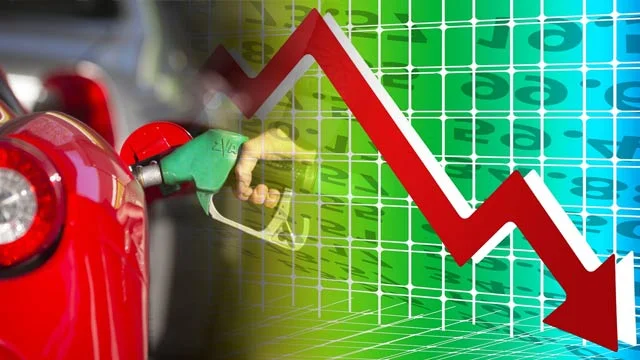Relief could be on the horizon for Ghanaian motorists as the cost of petrol may soon dip as low as GHS 12 per litre in the upcoming pricing window, according to Dr. Riverson Oppong, Chief Executive Officer of the Association of Oil Marketing Companies (AOMCs).
Dr. Oppong expressed optimism that the current strength of the Ghanaian cedi could translate into a substantial reduction in fuel prices in the days ahead. He hinted that if the currency maintains its current trajectory against the US dollar, the projected GHS 12 mark could be reached.
“Believe me, in the next window, we are even foreseeing petrol selling for GHS 12.
“The forecast will be by Thursday if the cedi continues with its stability.”
Dr. Riverson Oppong, Chief Executive Officer of the Association of Oil Marketing Companies (AOMCs)
Dr. Oppong explained that the value of the cedi plays a pivotal role in fuel pricing since petroleum products are priced internationally in US dollars and must be converted into the local currency for retail.
“As far as the cedi is also a very big factor in the forex calculation that’s converting from USD to cedi we also have that affecting the pump price.”
Dr. Riverson Oppong, Chief Executive Officer of the Association of Oil Marketing Companies (AOMCs)

This exchange rate sensitivity means that even in the absence of major changes in global oil prices, a stronger cedi can ease pump prices for consumers.
Already, the second pricing window of May has seen a notable downward adjustment in fuel costs. Dr. Oppong revealed that average fuel prices have fallen between 6% and 10% across the board since mid-May.
While consumers are likely to welcome the expected price drop, Dr. Oppong cautioned that such reductions can also affect government revenues, particularly from the upstream petroleum sector where taxes and royalties are key sources of public income.
“As we are happy with the downstream effect that is, the fuel price going down at the pump level you also see that there is revenue reduction in upstream.”
Dr. Riverson Oppong, Chief Executive Officer of the Association of Oil Marketing Companies (AOMCs)
This dual-edged scenario presents a policy challenge, balancing economic relief for citizens with the government’s need to maintain revenue streams, especially in a time of fiscal consolidation.
Market Outlook Positive but Cautious

Despite these concerns, Dr. Oppong remains upbeat about the near-term fuel market outlook. He attributed this optimism not only to the strength of the cedi but also to the relative stability of international benchmark prices for crude oil.
“With the plateauing of the international benchmark prices, we are likely to see that, and we shall be proud to have that effect on our consumer.”
Dr. Riverson Oppong, Chief Executive Officer of the Association of Oil Marketing Companies (AOMCs)
Global oil markets have witnessed less volatility in recent weeks, with Brent crude prices stabilizing amid tempered geopolitical tensions and moderated demand forecasts.
Combined with the cedi’s appreciation, this macroeconomic environment provides a favourable setting for fuel cost reductions.
The anticipation of lower fuel prices comes at a critical time for Ghanaian consumers, who have endured months of high transportation costs and inflationary pressures linked to previous fuel hikes.

With the next pricing window due to open later this week, all eyes are on whether the GHS 12 per litre benchmark will materialize.
For many consumers, this potential drop represents more than a brief respite it could signal a turning point in broader efforts to restore purchasing power and economic stability.
The AOMCs pledged to continue monitoring global and domestic market conditions, advocating for price adjustments that reflect true cost changes rather than opportunistic markups.
“We are tracking the numbers closely and working with stakeholders to ensure that any relief available is passed on to consumers.”
Dr. Riverson Oppong, Chief Executive Officer of the Association of Oil Marketing Companies (AOMCs)
Fuel pricing has a ripple effect across the entire economy from transport and logistics to the pricing of food and basic goods.
A consistent downward trend in fuel costs, especially one driven by macroeconomic fundamentals like currency appreciation, could enhance economic confidence and ease inflationary pressures.
However, the government will need to tread carefully. Falling upstream revenues could challenge fiscal targets, particularly if global oil prices remain low for an extended period. Balancing fiscal responsibility with consumer welfare will be key in the months ahead.
READ ALSO: Equities Tread Water as Policy Rate Remains at 28%, Financial Analyst Warns























